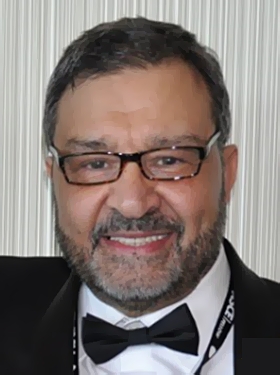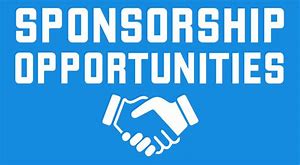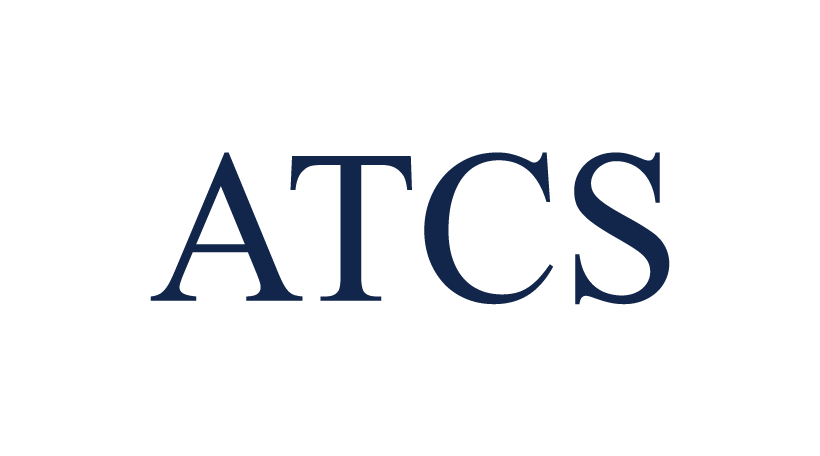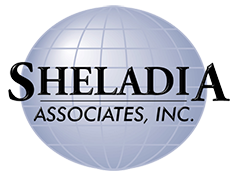Best Advice from Dr. Z. to Engineering Students: Take the F.E. Exam While You’re Still in College
For students and educators, January means the beginning of the Spring semester. Our colleagues and friends know that we truly enjoy being an “Engineering Educator” since we are continuously working with young minds, inspiring, motivating and most importantly educating them to become our future engineers.
Quite often, our readers and engineering students ask us for advice to become a competent civil engineer. And the best advice to them is to set goals, work hard and most importantly, take the Fundamentals of Engineering (FE) exam before you graduate. Last year, almost half our civil engineering students took and passed their FE exams on their first attempt, while they were in school. Of course, all of them received job-offer letters from well-known engineering firms after taking their first interviews.
For this month’s ASCE-NCS, Dr.Z’s Corner article, I’ve decided to share the success story of Maksim Bahdanovich, a civil engineering student from Belarus. Currently he is a senior engineering student at UDC. He just conquered the formidable FE exam before graduation. I hope our readers will enjoy reading Maksim’s interesting story:
Dear Dr. Zeytinci,
I was born and raised in Brest, Belarus. When I was a kid I fell in love with math. I was receiving a lot of joy from solving simple math problems, it really made me feel smart. As a result, I became really good at it. I passed math and physics exams and entered one of the best schools in my hometown. Throughout my high school education, I won many prizes at Olympiads in mathematics and physics. Because of my achievements, some universities from Belarus and Russia reached out to me with scholarship offers. However, I decided to try to enroll into a University in the United States so that I could continue my tennis career and engineering education.
I started playing tennis when I was 5 years old. I played for the regional tennis team and took part in many national and European tournaments. My achievements helped me to become a member of the Men’s Tennis team at the University of the District of Columbia and to receive a good scholarship. During my tennis career, I have learned so many things that help me succeed in my personal life as well. I learned a lot about the benefits of a healthy diet and gained strong willpower.
My father is a very respected Civil Engineer with years and years of experience. He has been managing multi-million-dollar projects of major construction companies in Europe and Asia. Quite often my father took me to the construction sites and taught me about various construction materials and processes. I really liked what he was doing, that is why I decided to become a Civil Engineer.
In August of 2018, I came to Washington, D.C. and started my college education receiving a full scholarship at the University of the District of Columbia. As an international student it was not easy for me to study at the beginning. However, with the support of my teachers, coaches, teammates and friends, I was able to adapt relatively fast. My analytical thinking and learning skills also helped me to understand the material and get good grades throughout my undergraduate education.
All of my professors at the University of the District of Columbia, Civil Engineering department, continuously reminded me that the first step to becoming a good civil engineer is to conquer the Fundamentals of Engineering (FE) exam. That is why I’ve decided to work hard and pass the FE exam before I graduate.
As soon as I started my senior year, I was preparing for the FE exam and solving all the problems published at ASCE-NCS, Dr. Z’s CORNER. I also covered several classes that I had not yet taken at school myself, and successfully passed my FE exam in November of 2021. That was great news for me and for my family. Years of hard work paid off.
I really value the knowledge I gained at the University of the District of Columbia. After graduation, I want to work as a civil engineer and get some experience in the office and the field.
Thank you, Dr. Z., for all the help. I can’t wait to send you the “good news” after I also pass my Professional Engineering (PE) exam!
– Maksim Bahdanovich,
UDC-Senior Civil Engineering Student

Finally, as always, we have to remind our readers that FE and PE exams are very fast paced exams and you will have little time to look up information. Therefore, make sure you are familiar with your NCEES-FE Reference Handbook, Version 10.1 and begin with the subject areas you know best. This will give you more time and build your confidence.
Most importantly, stay relaxed and confident. During the exam, keep a good attitude and remind yourself that you are going to do your best!
Until next time,
Ahmet Zeytinci, P.E.
This email address is being protected from spambots. You need JavaScript enabled to view it.
The Evolution of Engineering Ethics: ASCE’s Code of Ethics
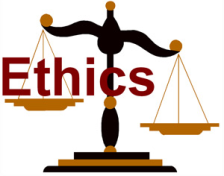
Dr. Z. wishes all ASCE-NCS eNewsletter readers health, happiness and prosperity in 2022. We trust, over the past several weeks, you all enjoyed spending time with family and friends. One of the things I love most about this time of year is the opportunity to catch up with those who I haven’t seen or spoken to in a while.
For this month’s article, I can’t think of a better title than “Engineering Ethics” and of course, I will use ASCE’s Code of Ethics as our main source in this article.
We live in a troubled, confused global society; one need only look over the East River and the absence of what was once there as a “monument” to the failure of values in our world. The engineer is a critical player in the modern technological society. His or her values and how he or she participates in the global economy is and will be a critical component of the wellbeing of our society. As engineering students, engineers and educators, we have a special role to play in forming the ethical values of the engineers of the future and tempering them in the application of ethics to their practice of the profession of engineering.
The Evolution of ASCE’s Code of Ethics
The Code of Ethics is the foundation of the application of the civil engineering profession to the client and the public at large. The codification of ethics has taken many forms: from the Ten Commandments, to the Doctrine of Socrates, to Nicomachean Ethics, to the Code of Hammurabi, to the American Constitution, to the Golden Rule, to the ASCE’s Code of Ethics tailored to the professional civil engineer. Between 1877 and 1914, the Society’s Board of Directors was very conservative and believed that ethics was a matter of an engineer’s personal responsibility and honor and not appropriate for a written code. In 1914, however, a special committee of the Board of Directors was appointed to draft a Code.
In 2008, ASCE published its first guide on ethics titled “The ASCE Code of Ethics, Principles, Study, and Application.” This guide discussed what a code of ethics is and how it applies to one’s professional and personal life. This first guide was written by Mr. Eric L. Flavell, P.E., FellowASCE as a gift to the Society and the profession so that we can continue to earn the public’s trust as we work to improve our quality of life. Help and support for the guide were provided by the Committee on Professional Practice, the Committee on Business Practices, and a Blue-Ribbon Panel to review the relevancy, content, and quality of this document.
Then the official code on ethics was published and adopted in 1914. The ASCE Code of Ethics, https://www.asce.org/-/media/asce-images-and-files/career-and-growth/ethics/documents/asce-code-ethics.pdf is now a model for professional conduct for all ASCE members.
The most recent ASCE’s Code of Ethics was updated on October 26, 2020 and starts with PREAMBLE “The latest Members of The American Society of Civil Engineers conduct themselves with integrity and professionalism, and above all else protect and advance the health, safety, and welfare of the public through the practice of Civil Engineering.”
Fundamental Questions on Ethics for Engineering Students
The ASCE’s First Guide on Ethics included more than thirty questions and answers for those new to ethics as well as those who have been learning and applying ethics all their lives. The following questions are intended to be thought provoking, with purposely short and concise responses. Each of these questions could be the source of extensive discussion. The intent is to expose the reader to the breadth of ethics, the importance of ethics, and to start the process of a serious and in-depth
- What is a Code of Ethics?
- Why do we need a Code of Ethics?
- The Code of Ethics is focused on how many constituencies?
- How should a Code of Ethics be used?
- Where does ethics come from?
- How does the Code of Ethics apply to my professional life?
- How does ethics apply to my personal life, outside of my professional life?
- Is everyone’s ethical focus the same?
- How do you judge others’ implementation of ethics?
- Why is ethics important?
- How does ethics impact leadership?
- Is ASCE’s Code of Ethics the same as everyone else?
- What should I do if I observe unethical behavior?
- What if my ethical position is different from someone else’s?
- Is compromise good ethics?
- Has ethics always been here?
- Who enforces ethics, and how is it done?
- Aren’t laws the same as ethics?
- Can I have more than one ethics?
- How do others see my ethics?
- What is the impact of ethics on the public’s view of the civil engineering profession?
- How do ethics impact my career?
- How can ethics impact my life?
- When I tried to apply ethics, it cost me that big project!
- How do I get the best ethics?
- Can I buy ethics?
- Is ethics public or personal?
- How can I demonstrate ethical commitment?
- Is ethics based on a cultural or religious affiliation?
- Is ethics just for me, or is it for others too?
- Is there something that can help me analyze and resolve an ethical problem?
Not only ASCE but also other professional organizations provide many sources of information that evaluate and teach how to apply ethics in your daily personal and professional life. ASCE’s website lists many ethics resources at https://www.asce.org/career-growth/ethics. The list includes both suggested reading materials and resources for self-study.
I would like to end this month’s article with a paragraph from “ASCE’s Discussion on Ethics.”
“The only things that an individual truly owns and controls are his/her thoughts, actions, memories, and integrity. Everything else in life is borrowed. Choose your actions thoughtfully and responsibly.”
Until next time,
Ahmet Zeytinci, P.E.
This email address is being protected from spambots. You need JavaScript enabled to view it.

